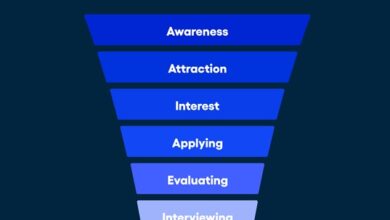Proactiveness at work and proactive person and 4 attitude of proactive professional
What is a proactive person?
In this article we will provide you the Proactiveness at work and proactive person and 4 attitude of proactive professional.
The question of proactiveness is more common than you might think. In short, it is the ability to anticipate situations , propose solutions and manage resources (human and material) in order to manage these scenarios.
The most important thing is that this must be an initiative of its own and not wait for orders from superiors to move.
A very practical example of a situation where this feature can be applied is a leaky faucet. A proactive person, when encountering this scenario, turns off the faucet instead of looking for the person responsible for the forgetfulness.
Of course, this is a pretty bizarre situation when compared to the real challenges found in a company.
The proactive professional does not work alone: he is able to help his colleagues and work as a team .
What does it mean to have a proactive attitude at work?
Simply put, the directors and leaders of a company expect their teams to be autonomous , that is, not just present to carry out orders.
Leading individuals who are always waiting for orders is extremely tiring and tends to hinder the progress of activities as a whole.
This is because, to build a truly productive team , it is important to be able to delegate and trust that the projects will progress without the need for micro-management by the leader, especially in a remote work scenario, where task management is more complex. .
Thus, having a proactive attitude at work means not having to have tasks and interests managed by leaders .
It is being able to envision projects that will help the company achieve its goals and take them out of the realm of ideas.
And being proactive at work doesn’t stop there, it’s also about looking for constant updates in the area of interest.
This is a very appreciated feature within organizations, as the job market is increasingly fierce.
Having up-to-date professionals is a huge competitive advantage.
Therefore, being proactive at work involves a combination of the following characteristics:
- nonconformity;
- determination;
- initiative;
- future vision;
- sense of timing;
- networking;
- self knowledge;
- focus;
- responsibility;
- resilience;
- adaptability.
4 attitudes of a proactive professional
A proactive person usually takes responsibility and intervenes in situations quickly and quickly, presenting the following attitudes:
1-Anticipation
The ability to look at the context fully and see what problems might arise and their chances of actually happening is one of the main characteristics of a proactive person .
This is what allows her to act quickly and take responsibility so that situations don’t become problems.
This anticipation helps to reduce stress at work and maintain a pleasant organizational climate .
2-Autonomy
A proactive person doesn’t expect their leaders to notice the problem and incubate them to solve it.
They are able to see their role in solving problems and take action within their responsibilities.
These individuals look for the reason for the situation and not to blame , looking to correct the cause of the problem and not just remedy the situation.
3-Ability to plan and prioritize
To resolve issues, the professional needs to feel free to organize and plan actions, knowing which ones must have priority for the action plan to be effective.
4-Avoid procrastination
The procrastination can be understood as the antonym of proactivity , because, to procrastinate, professional notes what needs to be done, however, leave for another time.
The proactive usually manages to focus on their activities and does not allow them to accumulate , avoiding the stress of running around.
What are the limits of proactivity?
Is there a limit to how far the initiative to take responsibility for you can go? The answer is yes .
Despite being a trait much desired by directors and leaders , when this energy is misdirected, it can easily become inconvenient.
When the objective of these attitudes becomes to generate recognition and not generate results, it can attract antipathy from colleagues.
Not only, looking for solutions to non-existent problems is something that affects the relationship with others and can even hinder the employee’s productivity.
It is important not to take matters into your own hands that do not belong to you. If you identify an issue, communicate through official means with those responsible for that area.
What is the difference between proactivity and productivity?
We opened this text saying that productivity and productivity are very different concepts , even though both are very well regarded in the work environment.
Productivity is a relationship between the number of tasks performed and the amount of resources employed (hours of work, raw materials, etc.).
In addition, a person is only productive if he delivers the work with quality, otherwise, he generates rework.
Already proactivity is the spontaneous initiative to carry out a task or plan a project without it being requested by the manager .
This action, in turn, may or may not be productive, after all, the delivery may have a low quality, for example.
Another interesting point is the illusion that someone who is proactive is a multitasking person who meets deadlines. Note that this skill doesn’t necessarily involve the traits we mentioned earlier.
Reactivity vs Proactivity: what’s the difference?
A reactive person can take responsibility for resolving the situation, however, there is a primary difference for the proactive: waiting for the situation to happen and then trying to reverse it . And this attitude can lead to omission.
Proactivity, on the other hand, focuses on preventing these situations from happening, taking a preventive attitude.
Just imagine a team composed of reactive people to understand why this behavioral profile is the terror of managers and HR . Everyone would wait for a crisis to set in before taking action, even if the signs were clear on the horizon.
How to develop proactivity at work?
Well, now you understand the importance of being proactive at work and the difference between responsiveness and productivity.
So, how to apply this concept in practice in the company’s daily activities? Below are some ideas below:
1-be participative
Always ask and be aware of your team’s and company’s key performance indicators .
This will help you to have a clear vision of what needs to be done and possible crises to come.
2-Know how to prioritize
It’s no use delivering all your tasks if some of them are not relevant for the moment.
So, it is important to always keep the indicators in mind to know which ones are a priority for the moment, making a strategic planning of your tasks .
3-Train and study constantly
Studying about your area of expertise is one of the best examples of proactivity. This attitude makes the professional bring news to the market, new points of view, revolutionary tools, etc.
The company plays an important role here when it promotes recurrent training .
4-plan projects
Are there any projects you’ve always wanted to develop that can help the company achieve its goals?
How about planning it to present the management or board ? It is an excellent way to show new solutions to achieve the desired results and stand out among employees.
5-practice self-knowledge
Are you proactive or reactive right now? Observe your attitudes critically and stick to reality and not what you want to be .
Discovering your characteristics can help you understand the strengths and weaknesses so that you can then take steps to improve them, improving over time.
What are the benefits of being proactive at work?
Proactiveness brings benefits not only for the company, but also for the employee himself , as it makes him stand out in the corporation, contributing to his professional growth in the institution and constant improvement of his skills.
Thus, some of the benefits that can be linked to proactivity are:
- better results , as the team tends to be more productive;
- prevention culture , solving problems before they happen;
- constant departure from the comfort zone ;
- dynamic team focused on strategic planning ;
- time optimization , since there are not so many crises in the projects;
- innovative vision;
- constant skill development .
How to encourage proactivity at work?
See some tips that can help strengthen this culture with your team.
1-empower the team
Contributors are highly intelligent and creative, however these qualities tend to be limited if they are always boxed.
Therefore, it is interesting to talk to the team and talk openly about expectations about their performance.
2-Encourage decision making
The work gets stuck if every time it is necessary to make a decision, employees need to talk to their leaders.
Therefore, encouraging decision-making (of course, given the limitations of your position) is important for a proactive attitude.
3-Talk individually with your collaborators
Nothing worse for someone who seeks to be always innovating than having their work widespread.
Therefore, performing an analysis of the activities and attitudes of each team member is essential so that they know that their efforts are being seen.
4-Culture is the key!
Employee attitudes are a reflection of the organizational culture, therefore, a new mentality must be born from an environment that encourages it.




